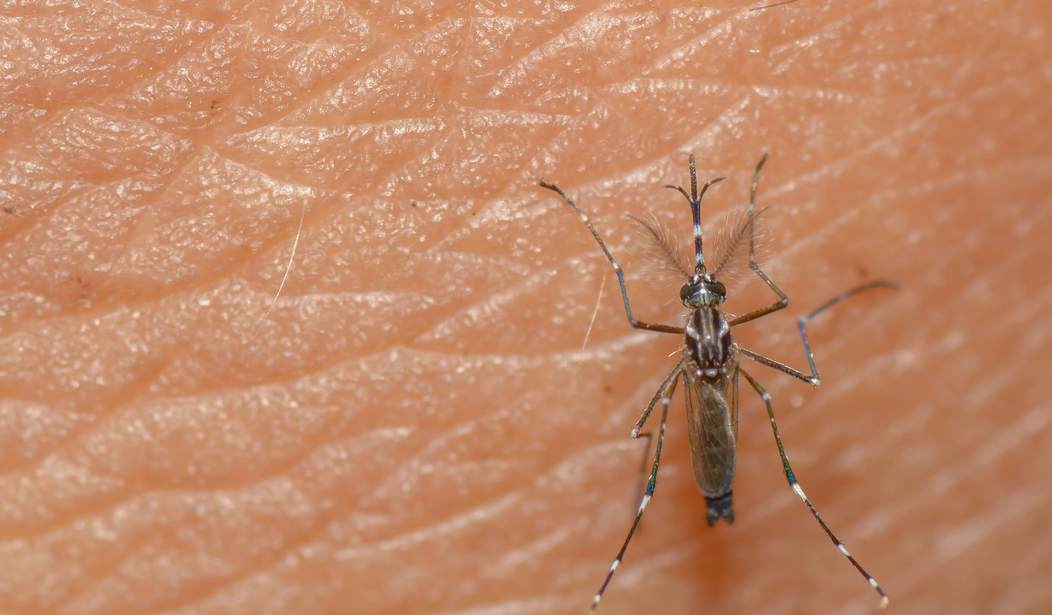A CDC official warned at today’s White House briefing that the Zika virus “seems to be a bit scarier than we initially thought.”
Dr. Anne Schuchat, director of the National Center of Immunization and Respiratory Diseases at the Centers for Disease Control, and Dr. Anthony Fauci from the National Institute of Health opened the briefing with press secretary Josh Earnest today, where Schuchat stressed health officials “continue to be learning pretty much every day” about the mosquito-borne virus.
“And most of what we’re learning is not reassuring. We have learned that the virus is linked to a broader set of complications in pregnancy, not just the microcephaly but also prematurity, blind — eye problems and some other conditions,” she said. “We have learned that the mosquito vector, the Aedes aegypti mosquito, is present in a broader range of states in the continental U.S. So instead of about 12 states where the mosquito Aedes aegypti is present, we believe about 30 states have the mosquito present.”
“We’ve also learned that the virus is likely to be a problem at much of the pregnancy period, not just probably the first trimester but potentially throughout the pregnancy.”
Schuchat said officials are “quite concerned” about U.S. territory and tourist destination Puerto Rico, stressing “there could be hundreds of thousands of cases of Zika virus in Puerto Rico and perhaps hundreds of affected babies.”
Current cases of Zika in the United States — 346 as of April 6 — were all linked to travel. Mosquitoes can start spreading the illness at the local level.
Of the 346 cases reported, 32 were pregnant women and seven were sexually transmitted. In those cases linked to sex, the CDC said in a fact sheet, “we know the virus can be spread when the man has symptoms, before symptoms start and after symptoms resolve” as “the virus is present in semen longer than in blood.”
There have been cases in Brazil where the virus was spread through blood transfusion, but no such cases have surfaced in the U.S.
Fauci said “the more and more we learn, the more and more you get concerned about the scope of what this virus is doing.”
He added that studies have shown the virus lingers longer in pregnant women and has neurological impact on the baby in vitro.
“This is a very unusual virus that we can’t even pretend to know everything about it that we need to know,” he said.
Since the CDC is basing its projections on two other viruses spread by the same mosquito — chikungunya or dengue — Schuchat said she doesn’t “expect there to be large outbreaks in the continental U.S.,” but “we can’t assume we’re not going to have a big problem.”
“We know with other viruses we’ve bigger problems than we expected so we’re taking this very seriously,” she said.
Based on that modeling, between 25 percent and 80 percent of the population of Puerto Rico could become infected with Zika.
In Puerto Rico, U.S. Virgin Islands and American Samoa, about 5,000 Zika prevention kits have been distributed to pregnant women. These include insect repellent, condoms, and vouchers for screening materials such as mosquito netting.
“We know a lot of couples were asking, well, I’m not pregnant, but I want to get pregnant, and you know, how long do I have to wait? So, we put out guidance on that as well about waiting an eight-week period following travel before trying to conceive for women, and waiting a longer period for men who have symptoms,” Schuchat said.
Fauci said the Zika outbreak took health officials by surprise because “it was a relatively inconsequential virus in the sense of a rather mild illness, virtually no mortality, no hints or signals of other things that we’re seeing now, for example, the microcephaly, the congenital abnormalities, or Guillain-Barre.”
“And what happened? And we don’t have all the answers to this. When it then had its first outbreak, and the first outbreak was in the Yap Islands, that’s when things started to explode,” Fauci said. “…And only when it hit a vulnerable, big population with a lot of mosquitoes, with people who have never been exposed to this before did we then start seeing the unfolding of this scenario that every week, every month tends to surprise us more.”









Join the conversation as a VIP Member